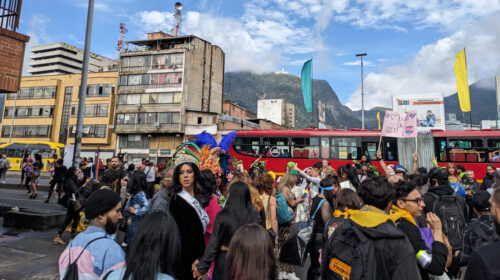
Una Soledad Acompañada: Trans Care, Study, and Opacity in Colombian Prison Worlds
This research probes the problem of care for trans people in Colombian prison worlds, especially the role of study as care. Care is often a site of untidy contestation, of suspicion, resentment, and silence alongside generosity, compassion, and trust. How do we act when others’ realities are not ours, but we seek to fight for and with them regardless?

Responding to Violence with Care
How different might our society look if public safety could be reimagined as caring for people and communities?

CryptoCare©
Perhaps you’re curious to know—just hypothetically–how far the current value of global cryptocurrency could go toward increasing the supply of child care in the U.S.

“Family or Boss?” Cultural Exchange Narratives and New Law Implementation in the US Au Pair Program
Even with new labor protections in place, Massachusetts au pairs still find themselves vulnerable due to the lack of agency supervision and the program’s emphasis on family membership and “cultural exchange.”
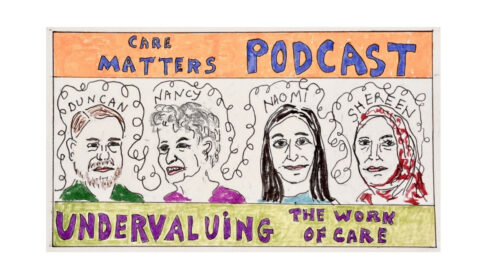
Podcast: Undervaluing the Work of Care
Check out this wide-ranging, international, and interdisciplinary discussion of the many reasons why care work is undervalued.
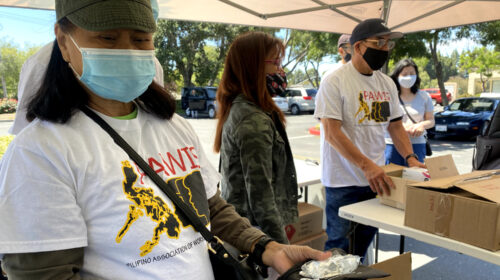
Invisible Frontliners: Filipina/o Caregivers in the United States and Collective Care
Before, during the COVID-19 era, and continued to today, Filipino care workers are at the frontlines of assisted living facilities, residential care facilities for the elderly (RCFEs) and as personal attendants to chronically ill and differently abled people in the San Francisco/Bay Area. Because the caregiving industry has stagnated as an under resourced sector of American healthcare, the care workers within it suffer from a host of labor violations. Yet, caregivers have innovated their ability to care for one another.
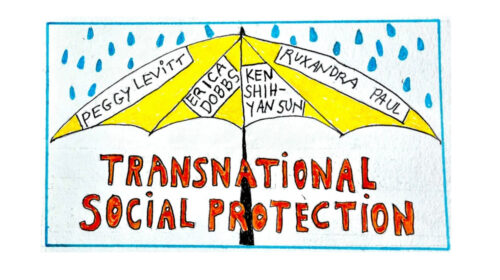
Bargain Hunting: Seeking Sustainable Care in a Globalized World
A recent book reckons with the “moral bargain” that provides protections for some at the expense of others.

Getting to Win-Win?: Labor Justice for Migrant Careworkers
The posts in this forum on visas for immigrant careworkers explore possibilities for policies that afford full labor protections and social inclusion for a system that serves both the providers and recipients of care.
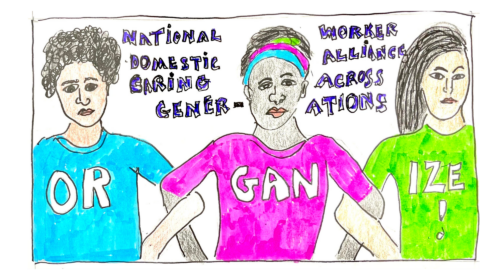
Legacies of the 1965 US Immigration Reforms
The 1965 Hart-Celler Immigration and Naturalization Act severely curtailed immigration of care workers to the United States, creating a significant care deficit in many families.
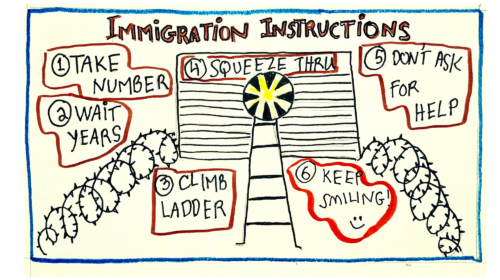
Caregiving at the Crossroads of Labor and Immigration Law
Temporary visa programs leave participants at the mercy of their employers, and therefore susceptible to abuse. Home care workers hoping to enforce their rights have two options: complain to the Department of Labor or pursue private litigation

Guestworkers or Culture Ambassadors? The US Au Pair Program
Caught up between the ambiguous migration regulations of family membership and cultural exchange, au pairs find themselves in precarious positions concerning their paid and unpaid labor
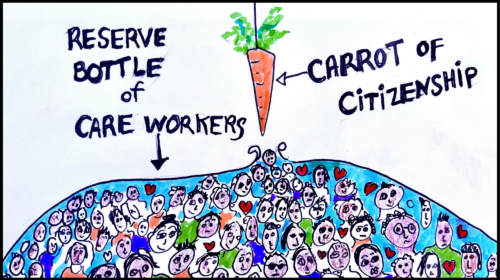
Canada’s “Citizens in Waiting”
Canada’s vaunted path to citizenship for care workers is seriously flawed.